2nd Winter School on Data Analytics (DA 2017)

Organizers:
- Laboratory of Algorithms and Technologies for Network Analysis of National Research University Higher School of Economics (LATNA) with a support of Russian Science Foundation
- Keldysh Institute of Applied Mathematics of Russian Academy of Science (IPM)
Dates: November 03-04, 2017
Place: Nizhny Novgorod
Target Groups:
The target groups of the school are students and young researchers interested in modern trends in data analytics, including big data processing and new machine learning and data mining techniques.
Registration Deadline: October 31
Registration
Presentations
School Lecturers:
Mikhail Burtsev, Moscow Institute of Physics and Technology
Lecture - iPavlov: Conversational Intelligence Project
Sergey Fedorov, Keldysh Institute of Applied Mathematics
Lecture 1- Modeling of nonstationary time series using nonparametric methods
Lecture 2 - Analyzing D2D Mobility in 5G Network
Mario Guarracino, ICAR-CNR, Italy
Lecture - Data Analytics using WEKA
Ivan Oseledets, Skolkovo Tech
Lecture - Tensor networks and deep neural networks
Panos Pardalos, University of Florida and HSE
Lecture - Data Uncertainty and Robust Machine Learning Optimization Models
Marcello Pelillo, University of Venice, Italy
Lecture 1 - Game-Theoretic Methods in Machine Learning
Lecture 2 - Game-Theoretic Methods in Machine Learning
Oleg Prokopyev, University Pittsburg, USA and HSE
Lecture - Exact approaches for finding maximum quasi-cliques and dense clusters/subgraphs
Theodore Trafalis, University of Oklahoma, USA
Lecture - Robust Learning with Approximate Dynamic Programming and Kernel Methods
Co-Chairs of the school:
Panos Pardalos, University of Florida and HSE
Alexander Aptekarev, Keldysh Institute of Applied Mathematics
Local Organizing Committee:
Mikhail Batsyn
Ilya Bychkov
Ivan Grechikhin
Valery Kalyagin
Vladimir Krylov
Timur Medvedev
Alexey Nikolaev
Alexander Ponomarenko
Alexander Rassadin
Andrey Savchenko
Sergey Slashchinin
Irina Utkina
Lecturer Information:
| Name | BIO |
Mikhail Burtsev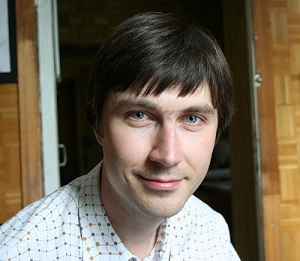 | Mikhail Burtsev is a head of Neural Networks and Deep Learning Lab, Moscow Institute of Physics and Technology. He was a research scientist at the department of Nonlinear Dynamics, Keldysh Institute of Applied Mathematics of Russia Academy of Sciences (KIAM RAS) and Senior research scientist at the department of Sytems development of P.K.Anokhin Institute of Normal Physiology of Russian Academy of Medical Sciences. He obtained his Ph.D. in computer Simulations and Numerical Methods at Keldysh Institute of Applied Mathematics of Russian Academy of Sciences, Moscow, Russia (2005), M.S. in Semiconductor Engineering at Moscow Power Engineering Institute, Moscow, Russia (2000) and B.S. in Semiconductor Engineering at Moscow Power Engineering Institute, Moscow, Russia (1998). Lives and works in Moscow. His research interests are: artificial intelligence, neuromorphic and cognitive systems, evolution of cognition, role of learning in evolution, selectionist theories of learning, growth of complexity in adaptive systems, neyromorphous systems. |
Sergey Fedorov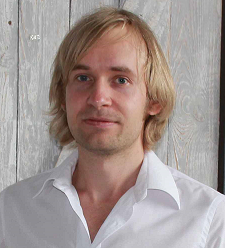 | Sergey Fedorov is a young researcher from Keldysh Institute of Applied Mathematics of Russian Academy of Sciences. He obtained his PhD from Keldysh Institute of Applied Mathematics and Master degree in Applied Mathematics from Moscow Institute of Physics and Technology (MIPT, Russia). His scientific interests are related with analysis of nonstationary time series and applications to the analysis of wireless channel quality metrics in 5G telecommunication network. |
Mario Guarracino |
Mario Guarracino is researcher at High Performance Computing and Complete CV (in italian) |
| Ivan Oseledets | Ivan is an Associate Professor at Skoltech, where he is a leader of the Scientific Computing Group. Ivan’s research focuses on the development breakthrough numerical techniques (matrix and tensor methods) for solving a broad range of high-dimensional problems. The main tools are linear algebra, singular value decomposition, low rank approximation of tensors. It involves beautiful math, but has a big programming/software development component. The numerical treatment of high-dimensional problems is notoriously difficult due to the curse of dimensionality: the complexity grows exponentially with the number of indices. The quest is to find something common that unites different numerical methods for high-dimensional problems. And tensors and their decompositions are one of the most promising approaches. Ivan is the author of more than 40 published/accepted papers in high profile numerical math/computational physics journals, which include SIAM J. Sci. Comput, Computer Physics Communications. He graduated from the Moscow Institute of Physics and Technology in 2006, defended his Ph.D. thesis in 2007 and “doctor of science” dissertation in 2012 (both from the Institute of Numerical Mathematics) |
Panos Pardalos .jpg) | Panos M. Pardalos serves as distinguished professor of industrial and systems engineering at the University of Florida. Additionally, he is the Paul and Heidi Brown Preeminent Professor of industrial and systems engineering. He is also an affiliated faculty member of the computer and information science Department, the Hellenic Studies Center, and the biomedical engineering program. He is also the director of the Center for Applied Optimization. Pardalos is a world leading expert in global and combinatorial optimization. His recent research interests include network design problems, optimization in telecommunications, e-commerce, data mining, biomedical applications, and massive computing. |
Marcello Pelillo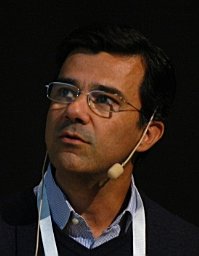 | Marcello Pelillo is a Professor of Computer Science at the University of Venice, Italy, where he directs the European Centre for Living Technology and leads the Computer Vision and Pattern Recognition group, which he founded in 1995. He held visiting research positions at McGill University (Canada), the University of Vienna (Austria), York University(UK), the University College London (UK), and the National ICT Australia (NICTA) (Australia). He serves (or has served) on the editorial boards of IEEE Transactions on Pattern Analysis and Machine Intelligence, IET Computer Vision, Pattern Recognition, Brain Informatics, and is on the advisory board of the International Journal of Machine Learning and Cybernetics. He has initiated several conferences series as Program Chair (EMMCVPR, IWCV, SIMBAD) and will serve as a General Chair for ICCV 2017. He is (or has been) scientific coordinator of several research projects, including SIMBAD, a highly successful EU-FP7 project devoted to similarity-based pattern analysis and recognition. Prof. Pelillo has been elected a Fellow of the IEEE and a Fellow of the IAPR, and has been appointed IEEE Distinguished Lecturer (2016-2017 term). |
Oleg Prokopyev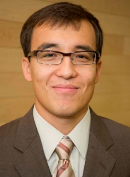 |
Oleg Prokopyev is a Professor at the Department of Industrial Engineering, University of Pittsburgh. He obtained his PhD from University of Florida and Master degree in Applied Mathematics from Moscow Institute of Physics and Technology (MIPT, Russia). He is an internationally recognized expert in discrete optimization with various applications. He is a co-Editor-in-Chief of international journal Optimization Letters, Department Editor of IIE Transactions (Focused Issue: Operations Engineering & Analytics), Area Editor of Omega, Editorial Board Member of Journal of Global Optimization a Journal of Industrial and Management Optimization. |
Theodore Trafalis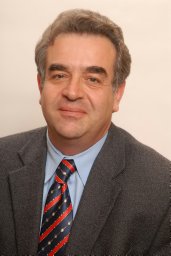 | Theodore B. Trafalis, PhD, is a Professor at the School of Industrial and Systems Engineering at the University of Oklahoma, USA and adjunct professor in the School of meteorology. In 2014 was on a sabbatical visiting the school of Electrical and Computer Engineering, National Technical University of Athens, Greece. He earned his BS in mathematics from the University of Athens, Greece, his MS in Applied Mathematics, MSIE, and PhD in Operations Research from Purdue University. He is a member of INFORMS, SIAM, International Society of Multiple Criteria Decision Making, and the International Society of Neural Networks. He has been listed in several Who’s Who biographies such as in the 1993/1994 edition of Who’s Who in the World. He was a visiting Assistant Professor at Purdue University (1989-1990), an invited Research Fellow at Delft University of Technology, Netherlands (1996), a visiting Associate Professor at Blaise Pascal University, France, and at the Technical University of Crete (1998). He was also an invited visiting Associate Professor at Akita Prefectural University, Japan (2001). The academic year 2006-2007 was on a sabbatical at the National Center for Scientific Research “Demokritos”, Institute of Informatics and Telecommunications, Computational Intelligence Laboratory (CIL), Athens, Greece. In June 2011 was invited researcher at the Institute of Applied Mathematics, University of Toulouse, France. In March 2014 he was invited professor at the Department of Computing, Unitec, Auckland, New Zealand. In 2015 he was also visiting professor in LATNA, Higher School of Economics, Nizhniy Novgorod, Russia. His research interests include: operations research/management science, mathematical programming, interior point methods, multiobjective optimization, control theory, artificial neural networks, kernel methods, evolutionary programming data mining, global optimization and weather applications. He has published more that one hundred fifty articles in journals, conference proceedings, edited books, made over one hundred technical presentations, and received several awards for his papers. In 2004 he received the Regents Award at the University of Oklahoma for his research activities. He has been funded through National Science Foundation (NSF), NOAA, Office of the Army and received the NSF Research Initiation Award in 1991. In 2006 he was the editor of a special issue in Support Vector Machines for the journal of Computational Management Science. He also co-edited a special issue in “Learning from Data” for the same journal. He has coauthored a research monograph with Springer under the title “Robust Data Mining” that was published in 2013. Prof. Trafalis currently serves as the chief editor of Intelligent Control and Automationandan associate editor for the Journal of Heuristicsand several other journals. In addition he has been on the Program Committee of several international conferences in the field of intelligent systems, data mining and optimization. He was also co-organizer of the International Conference on the Dynamics of Disasters, Athens, Greece, 2006 and organizer of the 1st , 2nd, 3rd and 4th International Conference in Industrial Systems and Design Engineering that were held in Athens, Greece, June 2013, 2014, 2015 and 2016 respectively. |
Have you spotted a typo?
Highlight it, click Ctrl+Enter and send us a message. Thank you for your help!
To be used only for spelling or punctuation mistakes.